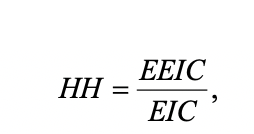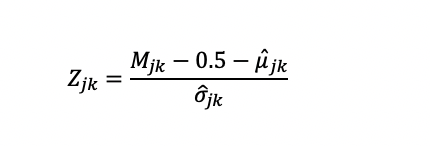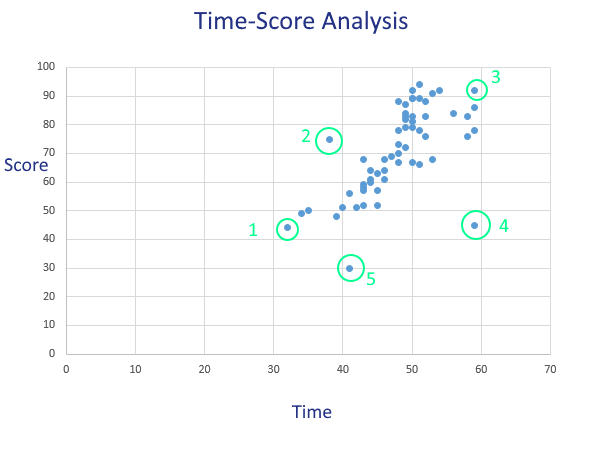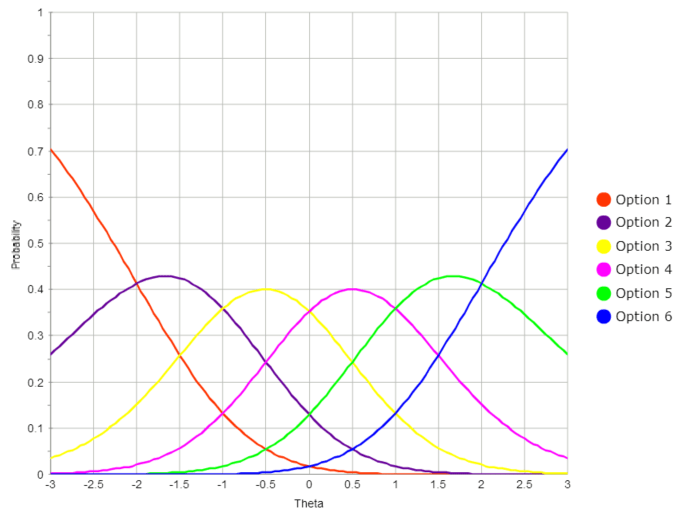Nathan Thompson articles

Harpp, Hogan, & Jennings (1996): Response Similarity Index
Harpp, Hogan, and Jennings (1996) revised their Response Similarity Index somewhat from Harpp and Hogan (1993). This produced a new equation for a statistic to detect collusion and other forms of exam cheating:. Explanation of

Harpp & Hogan (1993): Response Similarity Index
Harpp and Hogan (1993) suggested a response similarity index defined as Response Similarity Index Explanation EEIC denote the number of exact errors in common or identically wrong, EIC is the number of errors in common. This

Bellezza & Bellezza (1989): Error Similarity Analysis
This index evaluates error similarity analysis (ESA), namely estimating the probability that a given pair of examinees would have the same exact errors in common (EEIC), given the total number of errors they have in

Frary, Tideman, & Watts (1977): g2 Collusion Index
The Frary, Tideman, and Watts (1977) g2 index is a collusion (cheating) detection index, which is a standardization that evaluates a number of common responses between two examinees in the typical standardized format: observed common

Wollack 1997 Omega Collusion Index
Wollack (1997) adapted the standardized collusion index of Frary, Tidemann, and Watts (1977) g2 to item response theory (IRT) and produced the Wollack Omega (ω) index. It is clear that the graphics in the original

Wesolowsky (2000) Zjk Collusion Detection Index
Wesolowsky’s (2000) index is a collusion detection index, designed to look for exam cheating by finding similar response vectors amongst examinees. It is in the same family as g2 and Wollack’s ω. Like those, it

Response Time Effort
Wise and Kong (2005) defined an index to flag examinees not putting forth minimal effort, based on their response time. It is called the response time effort (RTE) index. Let K be the number of

Holland K Index and K Variants for Forensics
The Holland K index and variants are probability-based indices for psychometric forensics, like the Bellezza & Bellezza indices, but make use of conditional information in their calculations. All three estimate the probability of observing wij

Guttman Errors: Additional Insight into Examinees
Guttman errors are a concept derived from the Guttman Scaling approach to evaluating assessments. There are a number of ways that they can be used. Meijer (1994) suggests an evaluation of Guttman errors as a

Identifying Threats To Test Security
Test security is an increasingly important topic. There are several causes, including globalization, technological enhancements, and the move to a gig-based economy driven by credentials. Any organization that sponsors assessments that have any stakes tied

Flag Exam Cheating with Time-Score Analysis
Psychometric forensics is a surprisingly deep and complex field. Many of the indices are incredibly sophisticated, but a good high-level and simple analysis to start with is overall time vs. scores, which I call Time-Score Analysis.

What is a Psychometrician? Definition, roles, & careers.
A psychometrician is a data scientist who studies how to develop and analyze exams so that they are reliable, valid, and fair. Using psychometrics, Psychometricians implement aspects of engineering, data science, and machine learning to

What can Machine Learning tell us about our item banks?
Artificial intelligence (AI) and machine learning (ML) have become buzzwords over the past few years. As I already wrote about, they are actually old news in the field of psychometrics. Factor analysis is a classical

Ways the Word “Standard” is used in Assessment
If you have worked in the field of assessment and psychometrics, you have undoubtedly encountered the word “standard.” While a relatively simple word, it has the potential to be confusing because it is used in

The Generalized Partial Credit Model (GPCM)
The generalized partial credit model (GPCM, Muraki 1992) is an item response theory (IRT) model designed to work with items that are partial credit. That is, instead of just right/wrong as possible, scoring an examinee

R for psychometrics
If you are dealing with data science, which psychometrics most definitely is, you’ve probably come across R. It is an environment that allows you to implement packages for many different types of analysis, which are

Subject Matter Experts (SME) in Exam Development
Subject matter experts (SME) are an important part of the process in developing a defensible exam, especially in the world of credentialing and certification. A SME is someone with deep expertise on the content of

Is teaching to the test a bad thing?
One of the most cliche phrases associated with assessment is “teaching to the test.” I’ve always hated this phrase, because it is only used in a derogatory matter, almost always by people who do not
